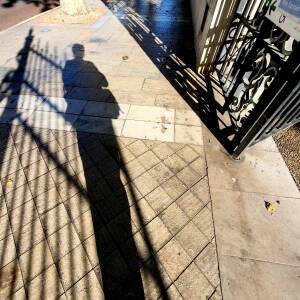Heartfelt
This is a plea to all the kind people on Blip who are collecting things for Ukrainian refugees. Please, please send money not stuff. It’s going to European countries where, at least for now, stuff can be bought locally in the moment that it is needed.
I’ve worked in a refugee charity and I know what it’s like not to be able to get to my desk because of the generous bags and boxes in front of it.
Among all the practical stuff I’ve been handed – the warm clothes, the buggies, the kitchen equipment – I have also been donated a tatty purse by someone whose mother brought it with her when she fled as a refugee. I’ve been offered a worn teddy bear by a child who wanted (or maybe that was their parent) a refugee child to love it as much as she did. The emotion and empathy in these donations is palpable. I thanked both profusely. I told the child that her teddy needed her love and that the refugee child would get a teddy of her own tomorrow, and perhaps when she hugged her teddy she could think about the refugee child hugging theirs. The purse? Well of course I took it. That donation was never about a purse, it was about family and history. But it takes a staunch heart to put what has been donated with compassion into the bin. I had to ask someone else, who hadn’t heard the giver’s story first hand, to do that for me.
But even the useful stuff is a problem.
I understand that donors relate more easily to a sleeping bag or a box of soap or a bagful of M&S underwear than to a change in their electronic bank balance but in the time it takes a tired and well-meaning driver to use the diesel to get the things there, a hundred other support groups across the UK and Europe have sent the same things, and the priorities may well have changed.
Those doing the face-to-face support with the refugees desperately need the cash to go and get what is required in the moment. The person they could send to do the shopping is in the back room, 10 metres from them, spending nine hours a day unpacking boxes (sadly, many from Amazon – who wins there?) doing an inventory of what’s in them, calling through the door, elated, about the size 1 nappies, phoning to rent storage space for the size 0 and size 2 and the socks and first aid kits and bras and deodorant and tampons and tents and torches and toothbrushes that may well get used in two months’ time but are in glut now.
And disposing of much of the rest.
In my work, which was not emergency work, we had masses of stuff to sort through. Some was incredibly useful and some was not fit for the local downmarket charity shop that accepts anything clean. Sometimes the second had contaminated the first.
The large charities, The Red Cross, Oxfam, Save the Children, all under the umbrella of the Disasters Emergency Committee, have logistics and supply lines already set up. If something is not available locally they know how to bring it in efficiently from nearby.
I am overwhelmed by the kindness and generosity of ordinary people, who’ve never had enough money to stash in an oligarch-friendly offshore fund, but I just ask you to ask those at the sharp end what would help most.

Comments
Sign in or get an account to comment.


